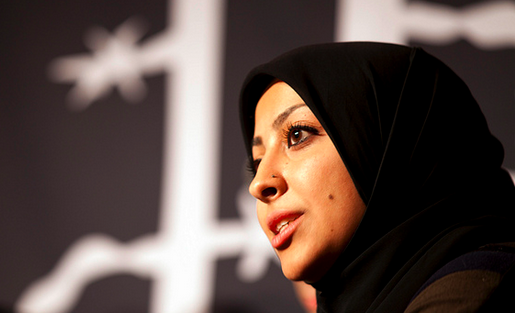With the rise of the Islamic State (or “ISIS”) and increasing repression in several countries — including Egypt and Saudi Arabia — 2014 has proven to be a rough year for freedom of expression in the Middle East and North Africa. Here are a few of this year’s big stories:
Egypt
The hopes of the so-called Arab Spring were dashed in a number of ways this year as Egypt’s military regime cracked down on fundamental freedoms, including freedom of speech. In the summer, the Egyptian government put forth a call for surveillance equipment, to monitor social media in multiple languages. As Egyptian lawyer Ahmed Ezzat recently wrote, increased surveillance will allow the regime to more closely monitor for blasphemy, political criticism, and issues of morality.
Jordan
Following 2012 amendments to the country’s Press and Publications Law, Jordan blocked hundreds of websites that failed or refused to apply for media licenses in mid-2013. One popular media and advocacy organization, 7iber, refused to comply and subsequently found themselves blocked. After several attempts to circumvent the ban — including setting up mirror sites at 7iber.net and 7iber.me — the organization gave in late this year and successfully applied for a license. But, they write: “This does not change [7iber’s] position against the Press and Publication Law and other laws that violate freedoms and rights guaranteed by the Jordanian constitution and by international human rights conventions ratified by Jordan, nor is it the end of our endeavor to fight censorship.”
Tunisia
Despite the country’s many gains toward democracy, Tunisia’s bloggers still struggle to express themselves freely. Jabeur Mejri — a blogger who spent time in prison for blasphemy charges and later received death threats — was jailed for eight months beginning in March for allegedly insulting a court clerk. He was released in mid-October.
Saudi Arabia
While Saudi Arabia has never been a beacon of freedom, this year saw an increase in censorship. One publication stated that 3,000 websites related to drug use had been blocked, while another reported that 10,000 Twitter accounts had been “closed” (or blocked). The extremely conservative government also blocked access to the website of the Gulf Center for Human Rights.
Bahrain
many #Bahrain men who joined #terrorism & #ISIS came from security institutions and those institutions were the first ideological incubator
— Nabeel Rajab (@NABEELRAJAB) September 28, 2014
Bahrain has continued its crackdown on opposition activists, with little interference from its Western supporters. Prominent Bahraini activist Zainab Al-Khawaja was sentenced to three years in prison for ripping up a photograph of the monarch, while her sister Maryam was sentenced in absentia for allegedly assaulting police officers. Previously imprisoned activist Nabeel Rajab was arrested for a single tweet (above), although Rajab argues that it was actually his speaking tour that prompted the detention.
For more information on digital rights in the Middle East and North Africa, subscribe to Digital Citizen, a bilingual newsletter reporting on the region.
Jillian C. York is the director of International Freedom of Expression at the Electronic Frontier Foundation. She writes regularly about free expression, politics and the Internet, with particular focus on the Arab world. She is on the Board of Directors of Global Voices Online and has written for a variety of publications, including Al Jazeera, The Atlantic, The Guardian, Foreign Policy and Bloomberg.





There should have been more publicity and condemnation in the West against the the oppression of those courageous individuals who defy the chieftains in Bahrain and other 18th century mentality Gulf states. But I suppose the decadent Wahhabi-Saudi rogues have dominated the political stage, expecially in Bahrain just because of their spite against the only regional non-Arab power that militates against the Zionist state in occupied Palestine, with Erdogan’s Turkey second to Iran.
With the internecine at its Zenith in the Arab world, only the exclusivist, racist, Zionist-Jewish sectarian state in occupied Palestine is the only beneficiary. Alas for the Arabs, President Nasser was not spared beyond his fifty-second year to carry on with that grand, inspirational, and dynamic leadership.